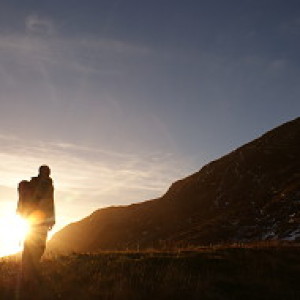Whiffle down the wind
BEST VIEWED LARGE
Whiffle - perhaps one of the most lovely and expressive, yet least known words in the English language. Whiffling is what these pink-footed geese are doing as they come in to land in fields near Flookburgh. Geese are large birds that lack the manoeuvrability of smaller birds on take off and landing. As they come into land they approach on a long glide. However, by whiffling they can lose height more rapidly and drop onto the target landing site. This is particularly necessary on windy days like today when the additional lift from the wind prolongs a glide approach.
Whiffling involves tilting the wings first one way then the other, and in some cases the whole body is turned upside down. There are two birds in this photograph that are on their backs with their feet in the air. Throughout these manoeuvres the head is maintained in the horizontal plane of normal flight, presumably to maintain perfect control during what otherwise could become a chaotic descent with risk of collisions. When upside down the neck is therefore twisted through 180 degrees. The whiffle causes the bird to stall and drop vertically, a flip back onto the horizontal plane restores the glide at a lower level.
I had heard about the goose flock from a colleague yesterday, so this morning went on my wild goose chase. There is an area of low-lying grassland close to Morecambe Bay that tends to flood in the winter, and this has been attracting five species of geese recently: grey lag, pink-footed, Greenland white-fronted, barnacle and the greatest prize of all, a single bean goose. Shortly after I arrived all but grey-lags and barnacles took off, and I thought that was it, I was out of luck. But ten minutes later, they started coming back and that was when I took this whiffling photo. It took me an hour and a half to finally pick out the single bean goose - the first time I've seen one in Cumbria.
The bird list moved on by 9 species for the year: the five geese, wigeon, teal, herring gull and lapwing. A total now of 67 species.
We spent this afternoon amongst other things researching new computers, decisions have been made.

Comments
Sign in or get an account to comment.


